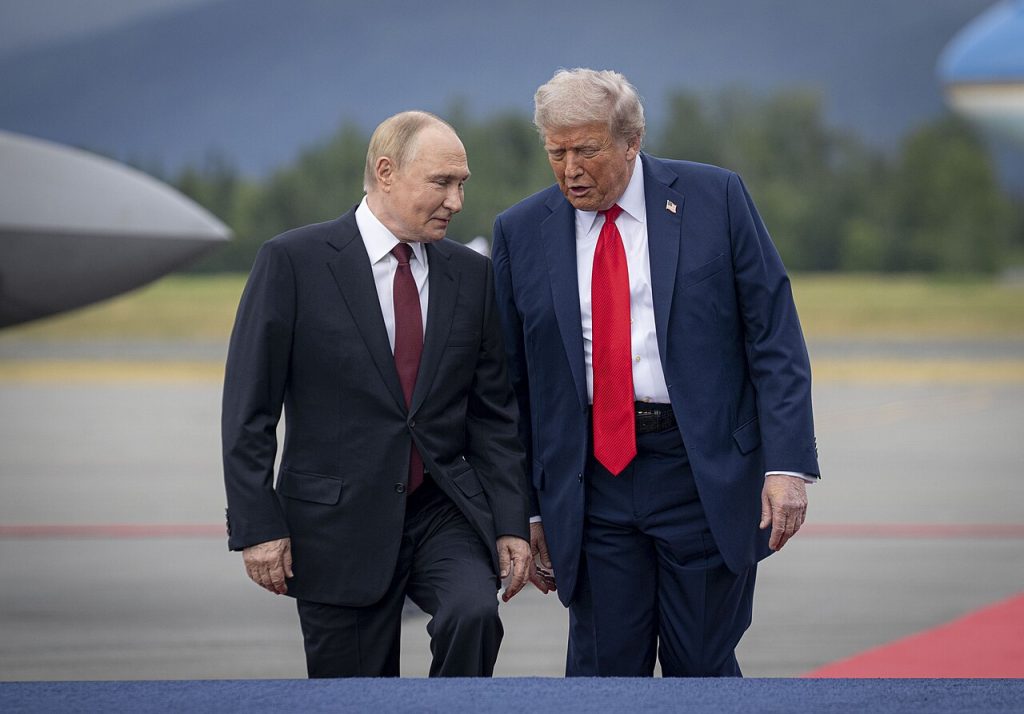As the war in Ukraine enters a perilous phase, analysts say the United States still has one advantage Moscow needs to secure its political aims.
Others are reading now
With Washington’s diplomatic channels stalled and Ukraine under growing pressure, the idea of a breakthrough now depends on whether the White House chooses to use that leverage.
A leading American researcher argues that Donald Trump could offer Vladimir Putin something the Kremlin values far more than territory.
Shifting battlefield risks
According to Ziare.com, Georgetown University professor Dr Jennifer Kavanagh told Responsible Statecraft that Russia is preparing for a prolonged conflict and sees no reason to curb its campaign until it reaches its minimum military goals.
She argues that the next few months could be the most volatile since the full-scale invasion began, with Ukrainian leaders under strain and both nuclear powers raising rhetorical threats.
Earlier efforts by Washington to distance itself from direct responsibility for Ukraine have narrowed, she said.
Also read
Trump has repeatedly called the conflict “Biden’s war,” but almost a year into his term he is increasingly tied to its outcome.
In her view, the United States will need a new approach if it hopes to salvage any form of diplomatic progress.
Moscow’s priorities
Dr Kavanagh says pressure alone will not push Russia to end the war. Instead, she believes the Trump administration must recognise what the Kremlin values most: direct US involvement in shaping the political and economic terms of any settlement.
“Putin needs US involvement to achieve his political goals and is much more concerned with the details of a deal than the US president,” she explained.
She warned that Moscow’s refusal to retreat reflects confidence, not desperation.
Also read
With Russian forces believing they have the upper hand, the Kremlin has responded to Trump’s public appeals for peace by intensifying its assault where Kyiv’s defences appear weakest.
Kyiv’s dilemma
Ukrainian leaders, she said, understand the need for a ceasefire but fear the consequences of any pause in fighting.
They remain convinced that the Russian president will not be satisfied until his forces control all of Ukraine, whether that belief is justified or not.
Trump has said he wants to “stop the loss of life,” but Kavanagh argues there is little urgency in his current strategy.
By shifting most of the financial and military burden to Europe, the administration has insulated itself from domestic political fallout.
Also read
Trump recently remarked that “sometimes you have to let them fight,” signalling a willingness to wait rather than push for rapid negotiations.
Hard choices ahead
If Ukrainian defences falter, the United States may face three deeply unattractive decisions: increase aid and accept higher costs, withdraw and allow Kyiv to fall, or pressure Ukraine into a settlement that benefits Moscow.
Kavanagh says this is precisely the moment when Washington must rethink its tools. She argues that Trump’s strongest asset is his relative lack of interest in the fine print of a ceasefire.
In contrast, Putin is “very interested in the details” and depends on US engagement to secure political and economic guarantees.
Russia can seize more territory without Washington, she noted, but it cannot secure long-term sanctions relief or binding commitments over NATO without US participation.
Also read
A possible opening
She believes the administration should signal willingness to negotiate on the issues Moscow cares about most, but make clear that this opportunity is limited in scope and duration.
Such a framework, she argues, would force Putin to choose between further territorial gains and the political and economic stability he is seeking.
“For the United States, this strategy has high potential and low risks,” she said. Washington would not be obliged to make immediate concessions, nor would it escalate tensions with Russia.
It would continue supporting Ukraine while clearly communicating that it will not deepen its involvement.
By linking the execution of any bilateral agreement to concrete steps in Ukraine, she believes the United States could create the first real incentive for compromise in years.


